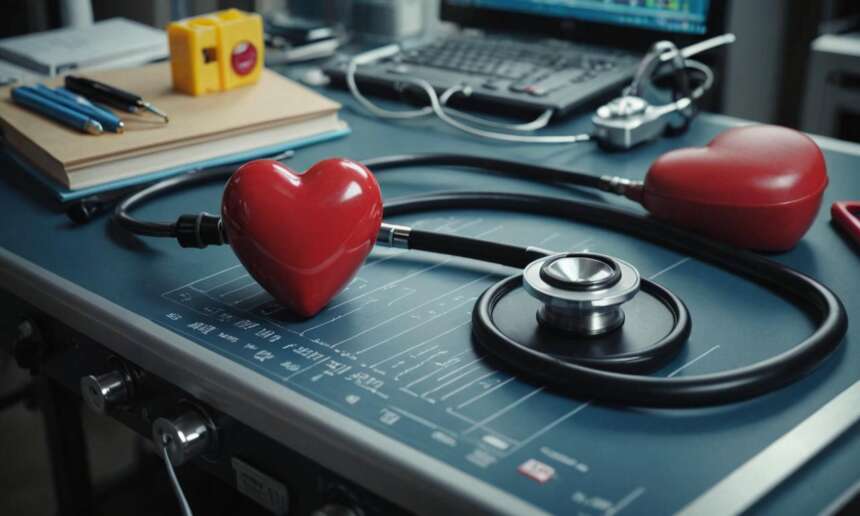If you’re passionate about the intricacies of the cardiovascular system and aspire to contribute to the field of cardiac physiology, embarking on the journey to become a cardiac physiologist can be an enriching and rewarding pursuit. Cardiac physiologists play a vital role in diagnosing and treating heart conditions, utilizing advanced technology and specialized knowledge to assess heart function and support patient care.
Educational Pathway
The first step towards becoming a cardiac physiologist is to obtain a solid educational foundation. Typically, this involves earning a bachelor’s degree in a related field such as physiology, biology, chemistry, or biomedical sciences. This undergraduate program provides fundamental knowledge in anatomy, physiology, and relevant scientific principles.
After completing a bachelor’s degree, aspiring cardiac physiologists usually pursue further education at the graduate level. Many opt for a master’s degree or doctoral program in clinical physiology, cardiovascular science, or a closely related field. These advanced degrees delve deeper into cardiac physiology, research methodologies, and specialized techniques.
Clinical Training and Certification
Once the educational requirements are fulfilled, individuals aspiring to become cardiac physiologists typically undergo clinical training to gain hands-on experience in cardiovascular procedures and diagnostics. This often involves completing a clinical placement or internship in a healthcare setting under the supervision of experienced professionals.
Following clinical training, obtaining certification may be necessary or beneficial depending on the jurisdiction or employer requirements. Certification programs such as Registered Cardiac Electrophysiology Specialist (RCES) or Registered Cardiac Sonographer (RCS) can demonstrate competency and proficiency in the field.
Specialization and Continuing Education
Cardiac physiology is a diverse and evolving field, offering opportunities for specialization and ongoing learning. Aspiring cardiac physiologists may choose to specialize in areas such as cardiac electrophysiology, echocardiography, or cardiac catheterization.
Continuing education is essential for staying abreast of advancements in technology, research, and clinical practices. Participating in conferences, workshops, and continuing education courses ensures that cardiac physiologists remain knowledgeable and skilled in their respective areas of expertise.
Professional Development and Networking
Building a strong professional network is crucial for career advancement and opportunities within the field of cardiac physiology. Engaging with professional organizations such as the American Society of Echocardiography (ASE) or the Heart Rhythm Society (HRS) can provide access to resources, mentorship, and networking events.
Additionally, seeking out opportunities for research collaboration, publication, and interdisciplinary collaboration can enhance professional development and contribute to the advancement of cardiac physiology as a whole.
Becoming a cardiac physiologist requires dedication, education, and ongoing commitment to excellence in patient care and scientific inquiry. By following the educational pathway, gaining clinical experience, pursuing specialization, and actively engaging in professional development and networking opportunities, individuals can embark on a fulfilling and impactful career in cardiac physiology.
Frequently Asked Questions
Here are some common questions aspiring cardiac physiologists might have:
| Question | Answer |
|---|---|
| 1. What undergraduate degree is best for becoming a cardiac physiologist? | While there isn’t a single “best” undergraduate degree, fields such as physiology, biology, chemistry, or biomedical sciences can provide a solid foundation for further study in cardiac physiology. |
| 2. Is clinical training mandatory? | It’s highly recommended to undergo clinical training to gain hands-on experience in cardiovascular procedures and diagnostics. Many employers and certification programs require clinical experience. |
| 3. How important is certification in the field of cardiac physiology? | Certification can be crucial for demonstrating competency and proficiency. Depending on the jurisdiction or employer, certification such as RCES or RCS may be required or highly beneficial. |
| 4. Can I specialize in multiple areas of cardiac physiology? | Yes, many cardiac physiologists choose to specialize in more than one area such as cardiac electrophysiology, echocardiography, or cardiac catheterization to broaden their expertise. |
| 5. How can I stay updated on advancements in the field? | Continuing education through conferences, workshops, and courses is essential for staying abreast of technological advancements, research findings, and evolving clinical practices. |
Research Opportunities
Engaging in research within the field of cardiac physiology can provide valuable insights, contribute to scientific knowledge, and enhance career opportunities. Many universities, hospitals, and research institutions offer research positions or collaborations for individuals interested in exploring cardiac physiology further.




